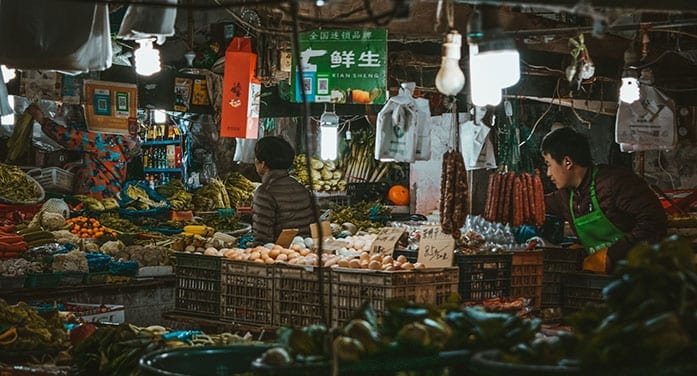 If there’s one thing we’ve learned throughout this pandemic, it’s how the science related to the virus can be constantly politicized. And to change COVID-19’s origin story, that’s exactly what China is doing.
If there’s one thing we’ve learned throughout this pandemic, it’s how the science related to the virus can be constantly politicized. And to change COVID-19’s origin story, that’s exactly what China is doing.
Many are talking about vaccine nationalism, with concerns that some nations are racing to access as many vaccines as possible. It’s disappointing, of course, but highly predictable. Vaccines are seen as the portal toward some sort of normalcy.
The World Health Organization has rightly registered its concerns about vaccine hoarding.
Meanwhile, the same world agency has sent a team to look at the origins of the coronavirus pandemic. The first visits were completed this week at a food market in the Chinese city of Wuhan, where many believe the global pandemic started.
Even if the investigation likely won’t generate much evidence regarding the pandemic’s origin, at least not early on, food safety nationalism is and will continue to impact the entire fact-finding discourse.
While the entire world considers Wuhan to be ground-zero of the pandemic, China has adopted a very different narrative.
For months, the Chinese government has released reports of imported food and products contaminated with COVID-19. In August, China accused Brazil of exporting COVID-19-contaminated products. A sample of frozen chicken wings imported from Brazil tested positive in the southern Chinese city of Shenzhen. The announcement was the latest in a series of reports of contaminated imported food products.
And then in the fall, the Chinese government urged companies to halt imports of frozen products from countries that have been hard hit by the pandemic, as fears continued to mount over the possibility of transmission through food packaging.
According to Chinese authorities, the first local asymptomatic infections in many weeks were detected when a few port workers from the city of Qingdao, responsible for unloading frozen seafood, tested positive for COVID-19.
China has continuously suggested the country was and is the victim of imported contaminated frozen foods, even though the science on the virus is now more developed than it was 11 months ago, as is its survival capacity.
Contamination through food supply chains is highly unlikely. There has not been one known case so far during the pandemic – outside of China, that is.
China is effectively playing the fear card. Some call it propaganda.
Ever since China was hit by the tainted melamine-in-milk scandal, consumers in the country have been suspicious about the safety of their domestic food. At the time, the country was hosting the 2008 Beijing Olympics and the government was hesitant to disclose anything, not wanting the distraction. The chosen tactic was concealment.
Now, during the pandemic, China has clearly chosen risk management nationalism when it comes to food safety. China is trying to portray itself as protecting its people against evil from outside its borders. The pandemic is being weaponized as a menace against the Chinese people.
According to some reports, it seems to be working. The focus on discriminating against imported foods has gone retail. Many food retailers in China are now separating imported products from domestic ones. Shoppers will see separate sections for imported products, to protect them from the threat of unknowns.
China, one of the world’s most active trading nations, is now allowing shoppers to mitigate risks themselves as they buy food at retail.
The pandemic has changed many rules, including how regulators handle perceived risks related to food safety.
Make no mistake, China’s propaganda machine is in full force and the WHO-led investigation will be nothing more than a wild goose chase. The outbreak started more than a year ago. Taking key samples and conducting genetic epidemiological studies is going to be close to impossible. Most of the critical evidence would have disappeared by now, deliberately or otherwise.
China allowed the visit to Wuhan for one reason only. This is not about the virus or understanding how it all started. This is about China and its attempt to alter the COVID-19 origin story.
The science may not be on China’s side. But the one thing we have learned during this pandemic is that the science related to the virus has been, most of the time, politicized. And that’s what China is doing.
Dr. Sylvain Charlebois is senior director of the agri-food analytics lab and a professor in food distribution and policy at Dalhousie University.
Sylvain is a Troy Media Thought Leader. Why aren’t you?
For interview requests, click here. You must be a Troy Media Marketplace media subscriber to access our Sourcebook.
The views, opinions and positions expressed by columnists and contributors are the author’s alone. They do not inherently or expressly reflect the views, opinions and/or positions of our publication.

